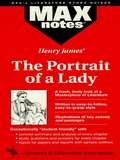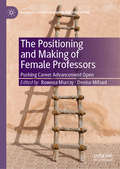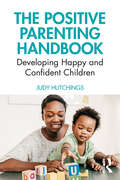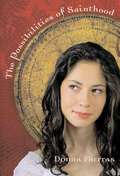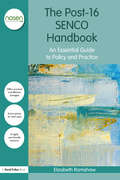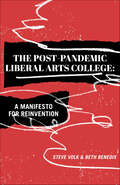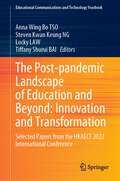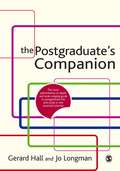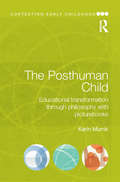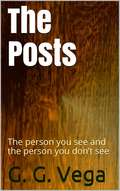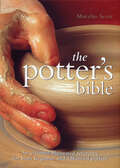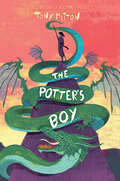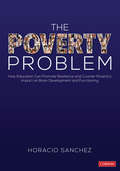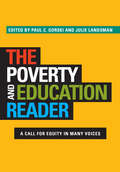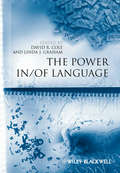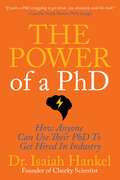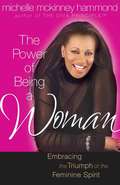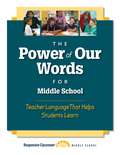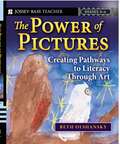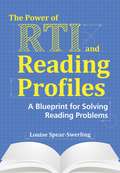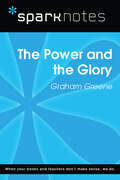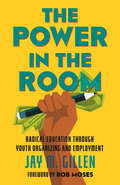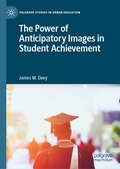- Table View
- List View
The Portrait of a Lady: MAXNotes Literature Guides
by Kevin KellyREA's MAXnotes for Henry James' The Portrait of a Lady MAXnotes offer a fresh look at masterpieces of literature, presented in a lively and interesting fashion. Written by literary experts who currently teach the subject, MAXnotes will enhance your understanding and enjoyment of the work. MAXnotes are designed to stimulate independent thought about the literary work by raising various issues and thought-provoking ideas and questions. MAXnotes cover the essentials of what one should know about each work, including an overall summary, character lists, an explanation and discussion of the plot, the work's historical context, illustrations to convey the mood of the work, and a biography of the author. Each chapter is individually summarized and analyzed, and has study questions and answers.
The Positioning and Making of Female Professors: Pushing Career Advancement Open (Palgrave Studies in Gender and Education)
by Rowena Murray Denise MifsudThis book explores the experiences and perspectives of female professors. Analysing the gendering of this process using various theoretical perspectives, this edited collection examines the active ‘making’ of careers, and how this has been possible. The editors and contributors cut across institutions, cultures and continents to seek to understand how women navigate the gendered process of becoming a professor, with each chapter applying a different theoretical or methodological approach to her experience. The chapters are not mere descriptions of career trajectories, but analytic narratives anchored within distinct theoretical and philosophical frameworks. In turn, they shed important light on how – and if – institutional structures and systems are adapting to move towards gender equality. Offering practical advice as well as thoughtful reflection, this book will be of especial interest to early career female academics.
The Positive Parenting Handbook: Developing happy and confident children
by Judy HutchingsDrawing on Judy Hutchings many years of work with parents and children, The Positive Parenting Handbook is a concise, straightforward guide that offers simple solutions to daily dilemmas. The clear and easy advice provides parents with skills and tools that support positive parent/child relationships for happy and confident children. It explains common behaviour problems in young children and offers expert advice on: -How to build strong bonds and let children know they are important to you -How to encourage behaviour we want to see through praise and small rewards -Giving instructions that children are more likely to follow -How ignoring some unwanted behaviours can be helpful -Strategies for managing difficult behaviour -Teaching new behaviour to our children -Developing children’s language. It includes six case studies of how these strategies have helped real families with everyday problems at bedtime and mealtimes, during toilet training, out shopping and when children experience anxiety. Together with suggestions of other useful books and information sources, The Positive Parenting Handbook is ideal for all parents, including those of children with diagnosed developmental difficulties, and the range of professionals who work with them.
The Possibilities of Sainthood
by Donna FreitasWhile regularly petitioning the Vatican to make her the first living saint, Antonia Labella prays to assorted patron saints for every help with preparing the family's fig trees for a Rhode Island winter to getting her first kiss from the right boy.
The Post-16 SENCO Handbook: An Essential Guide to Policy and Practice (nasen spotlight)
by Elizabeth RamshawThis accessible, practical handbook provides essential guidance to SENCOs in sixth forms and colleges of further education on how to manage the support of students with additional needs, and how to work with their colleagues, students' families and external professionals to co-ordinate effective provision. As a result of the revised Code of Practice 0-25 years (2015) it has been necessary for the FE sector to develop a new approach to the responsibility for, and support of, students with learning difficulties and disabilities. With up-to-date information on supporting and taking responsibility for learners with SEN and disabilities, this book offers practical advice and guidance on: • The expectations of Further Education colleges and an overview of the learning difficulties/disabilities that they may need to support; • assessment methods and the importance of consistent, ongoing vigilance and analysis; • the roles, responsibilities and staff specialism involved in providing different support for different needs; • requesting and reviewing Education, Health and Care Plans; • working with families, carers, schools and other external professionals; • planning for the onward transition of a learner’s further education experience. The Post-16 SENCO Handbook will be essential reading for those involved with provision for post-16 students with additional learning needs who want to deepen their knowledge and enhance their practice.
The Post-Pandemic Liberal Arts College: A Manifesto for Reinvention
by Steve Volk Beth BenedixA succinct and impassioned call to reimagine and revive the small liberal arts college, by two veteran educators. Private liberal arts colleges have struggled for decades; now, as the COVID-19 pandemic widens cracks latent in many American institutions, they are facing a possibly mortal crisis. In The Post-Pandemic Liberal Arts College: A Manifesto for Reinvention, Steven Volk and Beth Benedix call for small colleges to seize this moment and reinvent themselves. With the rise of rankings that set peer institutions against each other, tuition that outpaces income, creeping pre-professionalism, and a race to build student &“customers&” the splashiest new amenities, many private liberal arts colleges have strayed from their founders&’ missions. If they could shed the mantle of exclusivity, reduce costs, facilitate true social mobility, and collaborate with each other, the authors argue, they might both survive and again become just, equitable, accessible institutions able to offer the transformative and visionary education that is their hallmark. Educators, students, parents, and anyone invested in the future of higher education should read this book.
The Post-pandemic Landscape of Education and Beyond: Selected Papers from the HKAECT 2022 International Conference (Educational Communications and Technology Yearbook)
by Anna Wing Bo TSO Steven Kwan Keung NG Locky Law Tiffany Shurui BaiWith the purpose of exploring the critical possibilities offered by the global crisis of coronavirus pandemic, this volume presents the collected works of scholars, educators and practitioners worldwide, bringing to the readers a broad array of perspectives on how COVID-19 inspires us to rethink, redefine, and make sense of the theoretical and pedagogical approaches that can be applied in various educational contexts. Part One of the book provides an insightful exploration of the technology-mediated innovations used in English language learning and teaching. Part Two reflects on the online learning experiences of students, as well as the teachers’ strategies to cope with changes as the COVID-19 pandemic unleashed unprecedented disruptions in class. Part Three looks into a range of case studies regarding the digital divide, cross-border schooling, cyberbullying, and cross-disciplinary skill training in the post-pandemic workplace, highlighting the importance of creating a positive learning environment. Part Four draws on the observations and experiences of frontline teachers, to examine ways to optimize the digital learning experiences of students in and outside the classroom. This volume will be a useful reference for scholars in Education, Communication, Applied Linguistics, Social Work, and Positive Psychology.
The Postgraduate's Companion
by Jo Longman Gerard HallThe Postgraduate's Companion is the most comprehensive, practical and accessible source of support and guidance for anyone contemplating starting, or already undertaking, their research degree. Hall and Longman's invaluable book is an essential reference resource for anyone doing postgraduate research or thinking of doing it. Leading experts in their fields address the fundamental questions of what a research degree involves; how to choose the best institution; secure an offer; and fund your research degree. For students who are currently working towards a research degree the book deals with the process thoroughly, including coverage of: getting the most from the supervisory relationship planning and writing the thesis navigating and succeeding in research training learning to teach in HE and balancing teaching and research beating the blues and learning how to complete in good time succeeding in the viva voce examination. The final section of the book covers what to do with a research degree once you have one. This includes identifying your skills; staying in academia; research outside academia; leaving research and academia; and starting your own business. SAGE Study Skills are essential study guides for students of all levels. From how to write great essays and succeeding at university, to writing your undergraduate dissertation and doing postgraduate research, SAGE Study Skills help you get the best from your time at university. Visit the SAGE Study Skills hub for tips, resources and videos on study success!
The Posthuman Child: Educational transformation through philosophy with picturebooks (Contesting Early Childhood)
by Karin MurrisThe Posthuman Child combats institutionalised ageist practices in primary, early childhood and teacher education. Grounded in a critical posthumanist perspective on the purpose of education, it provides a genealogy of psychology, sociology and philosophy of childhood in which dominant figurations of child and childhood are exposed as positioning child as epistemically and ontologically inferior. Entangled throughout this book are practical and theorised examples of philosophical work with student teachers, teachers, other practitioners and children (aged 3-11) from South Africa and Britain. These engage arguments about how children are routinely marginalised, discriminated against and denied, especially when the child is also female, black, lives in poverty and whose home language is not English. The book makes a distinctive contribution to the decolonisation of childhood discourses. Underpinned by good quality picturebooks and other striking images, the book's radical proposal for transformation is to reconfigure the child as rich, resourceful and resilient through relationships with (non) human others, and explores the implications for literary and literacy education, teacher education, curriculum construction, implementation and assessment. It is essential reading for all who research, work and live with children.
The Posts
by Guido Galeano Vega Alexandra JimenezIn the middle of a crowd, or under the same roof where you live in, you know people, but you don’t really know them. We know in most of the cases just the facade of people. We see on TV: journalists, politicians, artists, scientists, sportsmen, and women, of whom we really don’t know much, and sometimes we know nothing of them. We just know the facade, and facades, most of the time, are too embellished, meaning that in reality, we are not seeing anything absolutely real of that person. Lots of people, don't really know their mother or father today, much less their past, and apparently, they are close to them. We see people in our environment, but those same people, represent people we don't really know.
The Potter's Bible: An Essential Illustrated Reference for Both Beginner and Advanced Potters (Artist/craft Bible Ser.)
by Marylin ScottAn essential guide for beginner and advanced potters, featuring step-by-step photographs to guide you through a comprehensive range of techniques.Begin making beautiful ceramics, even if you’ve never attempted pottery before, following detailed information about:Essential tools and studio equipmentDifferent types and constituencies of clay—including earthenware, stoneware, porcelain, and rakuForming methods—including pinching, coiling, slabbing, press molding, throwing, and trimmingAdding texture and patterns—with techniques such as sgraffito, stamping, inlaying, and burnishingPainting and printing—using slip, banding and combing, resists, and underglazesGlazes and post-firing techniques—including salt and soda glazes, lusters, and metal leafEssential technical resources—such as glaze recipes, types of kilns and firings, and health and safety tipsWith its combination of practical advice, exciting images, inspirational ideas, and a glossary, this book is a must-have for all potters at any stage of their career.
The Potter's Boy
by Tony MittonAn odyssey-type adventure and coming-of-age story about family obligation and finding one's path. This is The Alchemist meets Inside Out and Back Again for fans of Thanhha Lai.The first middle-grade novel from internationally acclaimed author Tony Mitton!Ryo was born the son of a potter, a fate that he is unsure of once a mysterious wanderer and trained fighter comes to his small village and protects them from a band of thieves. Inspired by the events, Ryo embarks on both a hero's quest and a quest to be a hero. Through his adventures, Ryo trains in the art of both fighting and mindfulness under the elusive Hermit of Cold Mountain. On his journey, he learns the art of stillness, the body's relationship to nature, and the art of controlling one's emotions in order to find his path in life. But when tragedy strikes the group, and the way of life that Ryo knows, he must use what he's learned to do what is right for himself and his future. With excellent pacing and poetic prose, The Potter's Boy is a story about family obligation and finding one's purpose.
The Poverty Problem: How Education Can Promote Resilience and Counter Poverty′s Impact on Brain Development and Functioning
by Horacio SanchezImprove outcomes for students in poverty by understanding their developing brains Economic hardship is changing our students’ brain structures at a genetic level, producing psychological, behavioral, and cognitive issues that dramatically impact learning, behavior, physical health, and emotional stability. But there is hope. This groundbreaking book by one of the nation’s top experts in brain science and resilience offers solutions that will change minds, attitudes, and behaviors. Learn about how problems develop between people of different races, how the brain develops in persistent poverty, and how it might react to solutions. Inside, you will find real-life applications on topics including: • The lack of culturally competent instruction and its impact on students of color • Poverty′s effect on language development and how it can be positively influenced • The importance of reading • How to counteract the effects of the widespread stress in lower SES environments Children make up 23% of the U.S. population and account for almost 33% of those living in poverty, making the education system our most distressed institution. In The Poverty Problem, you’ll learn how to increase students’ perseverance and confidence and positively impact outcomes by arming yourself with research-based instructional strategies that are inspiring, realistic, and proven to work.
The Poverty Problem: How Education Can Promote Resilience and Counter Poverty′s Impact on Brain Development and Functioning
by Horacio SanchezImprove outcomes for students in poverty by understanding their developing brains Economic hardship is changing our students’ brain structures at a genetic level, producing psychological, behavioral, and cognitive issues that dramatically impact learning, behavior, physical health, and emotional stability. But there is hope. This groundbreaking book by one of the nation’s top experts in brain science and resilience offers solutions that will change minds, attitudes, and behaviors. Learn about how problems develop between people of different races, how the brain develops in persistent poverty, and how it might react to solutions. Inside, you will find real-life applications on topics including: • The lack of culturally competent instruction and its impact on students of color • Poverty′s effect on language development and how it can be positively influenced • The importance of reading • How to counteract the effects of the widespread stress in lower SES environments Children make up 23% of the U.S. population and account for almost 33% of those living in poverty, making the education system our most distressed institution. In The Poverty Problem, you’ll learn how to increase students’ perseverance and confidence and positively impact outcomes by arming yourself with research-based instructional strategies that are inspiring, realistic, and proven to work.
The Poverty and Education Reader: A Call for Equity in Many Voices
by Paul C. Gorski Julie LandsmanThrough a rich mix of essays, memoirs, and poetry, the contributors to The Poverty and Education Reader bring to the fore the schooling experiences of poor and working class students, highlighting the resiliency, creativity, and educational aspirations of low-income families. They showcase proven strategies that imaginative teachers and schools have adopted for closing the opportunity gap, demonstrating how they have succeeded by working in partnership with low-income families, and despite growing class sizes, the imposition of rote pedagogical models, and teach-to-the-test mandates. The contributors—teachers, students, parents, educational activists, and scholars—repudiate the prevalent, but too rarely discussed, deficit views of students and families in poverty. Rather than focusing on how to “fix” poor and working class youth, they challenge us to acknowledge the ways these youth and their families are disenfranchised by educational policies and practices that deny them the opportunities enjoyed by their wealthier peers. Just as importantly, they offer effective school and classroom strategies to mitigate the effects of educational inequality on students in poverty. Rejecting the simplistic notion that a single program, policy, or pedagogy can undo social or educational inequalities, this Reader inspires and equips educators to challenge the disparities to which underserved communities are subjected. It is a positive resource for students of education and for teachers, principals, social workers, community organizers, and policy makers who want to make the promise of educational equality a reality.
The Power In / Of Language (Educational Philosophy and Theory Special Issues #28)
by David R. Cole Linda J. GrahamThe Power In/Of Language features a collection of essays that analyse the ways in which language is utilized in contemporary education revealing its deeply entrenched power relationships. Features essays grounded in theoretical rigor that offer critical insights into contemporary educational practice Provides educators with fresh new perspectives on language in education Based on the latest research data
The Power Of A Phd: 8 Steps To Using Your Phd To Get Hired In Industry
by Isaiah HankelImagine never having to work in another dead-end academic position, or being able to tell the world you are in a leadership position within a thriving company. PhDs are in demand in industry, but often, these PhDs are invisible to potential employers. Dr. Isaiah Hankel, leverages his expertise as the CEO of the world's largest career training platform for PhDs, Cheeky Scientist, to help PhDs overcome their biggest obstacle: obscurity.
The Power Of Being A Woman: Mastering The Art Of Femininity
by Michelle Mckinney HammondIf you've grown weary of the raging battle between the sexes, it's time to arm yourself with the understanding it takes to win the war. With grace and honesty, Michelle McKinney Hammond declares it's time for women to rediscover their value as well as the true source of their power. Instead of proclaiming "I am woman, hear me roar" at guys, McKinney Hammond says it's time to call a truce, speak normally and still be heard. Enjoy some laughs and gain a fresh biblical perspective on your femininity. You'll discover the power of influence, the pitfalls of manipulation, and the strength of vulnerability.
The Power Of Our Words For Middle School: Teacher Language That Helps Students Learn
by Center for Responsive SchoolsWhen the language we use with our students is positive, clear, and purposeful, our classrooms are transformed. This practical book focuses on five types of positive teacher language: Envisioning language—help students see themselves reaching goals and making positive contributions Reinforcing language—recognize students' efforts so they can build on their success Reminding language—prompt students to take more responsibility for their learning Redirecting language—get students back on task quickly Open-ended questions—build critical and creative thinking skills
The Power Of Pictures: Creating Pathways To Literacy Through Art, Grades K-6
by Beth OlshanskyIn The Power of Pictures book and companion DVD, Beth Olshansky introduces teachers to her innovative art-based approach to literacy instruction. Widely practiced in classrooms across the country, the model has been proven by research to improve literacy achievement with a wide range of learners, especially those who struggle with verbal skills. At the heart of her approach is the Artists/Writers Workshop. Through study of quality picture books and hands-on art experiences, students learn to visualize, “paint pictures with words,” and ultimately create their own extraordinary artistic and literary work. The book and DVD explain how any teacher can successfully use this process to enable all students, particularly low performers, to make dramatic gains in...
The Power Of RTI And Reading Profiles: A Blueprint For Solving Reading Problems
by Louise Spear-SwerlingThis one-of-a-kind text explains why RTI is today's best approach for preventing reading difficulties—and how research on reading profiles can enhance the power of RTI. For practitioners, the book provides a complete, evidence-based blueprint for using RTI and reading profiles in tandem to plan effective core literacy instruction and help struggling readers in Grades K-6, whether they have disabilities or issues related to experience (e.g., ELLs, children from poverty backgrounds). For researchers and policymakers, the book describes ways to help ensure higher reading achievement for every student, including improvements in core reading instruction, use of RTI practices and the Common Core State Standards, and teacher preparation.
The Power and the Glory (SparkNotes Literature Guide Series)
by SparkNotesThe Power and the Glory (SparkNotes Literature Guide) by Graham Greene Making the reading experience fun! Created by Harvard students for students everywhere, SparkNotes is a new breed of study guide: smarter, better, faster. Geared to what today's students need to know, SparkNotes provides: *Chapter-by-chapter analysis *Explanations of key themes, motifs, and symbols *A review quiz and essay topicsLively and accessible, these guides are perfect for late-night studying and writing papers
The Power in Your Hands: Writing Nonfiction in High School
by Sharon WatsonFinally, your teens will write without dread! Have they almost given up on writing? Do they reach for the tissue box when you say, "Write an essay"? Do you worry they won't be ready for high school or college writing? Do they say they think of things to write but can't write them down? With THE POWER IN YOUR HANDS: WRITING NONFICTION IN HIGH SCHOOL, 2ND EDITION, they'll learn essay writing in a relaxed, nonthreatening atmosphere with a little humor thrown in. This 2ND EDITION includes proofreading marks and exercises, a new chapter on common grammar mistakes, and numbered lessons to easily keep track of daily lessons. This course teaches your teens what they need to know for high school and will be prepare them for college writing: persuasion, compare-and-contrast essays, literary analysis, a research paper with MLA documentation, and much more. In addition, students will learn how to write description and narration essays. Beginning writers will feel safe, and advanced writers will enjoy Digging Deeper lessons. Written by the same author who wrote JUMP IN, Apologia's popular middle school writing curriculum, this course is the natural next step for those who value college-preparatory material presented in incremental steps with a conversational tone. Sharon Watson has the knack of teaching students with no prior writing experience in the same class with advanced writers. She knows when to introduce new material and how to keep it interesting. Both reluctant and eager writers will benefit from the way she reveals exactly how the "magic trick" of writing is done! With over 100 daily lessons and complete instructions for 22 essays and reports, this is an engaging course students will enjoy--or not dread. And, more good news: the course is written to the student and almost teaches itself. Really. Because writers come in all varieties, this course begins with basic writing skills so that inexperienced writers can catch up quickly on fundamentals, and then it smoothly merges them with their age-mates. More advanced writers will enjoy the Digging Deeper lessons designed specifically for them. New and seasoned writers will gain a confidence that comes from success. Perfect for homeschools, co-ops, and private schools. Contains some Christian-based material. For SAT essay information, visit http://writingwithsharonwatson.com/sat-essay/. Don't let another year slide by without a solid writing curriculum! Engage your students with this intriguing course filled with examples from real students and professional writers. Prerequisites: None. An additional grammar course is recommended. Teachers, you'll want THE POWER IN YOUR HANDS: WRITING NONFICTION IN HIGH SCHOOL, 2ND EDITION, TEACHER'S GUIDE. This updated teacher's guide includes all assignments and checklists, answers to chapter work, a year of engaging writing prompts, and GRADING GRIDS for each assignment to take the guesswork out of grading essays!
The Power in the Room: Radical Education Through Youth Organizing and Employment
by Jay GillenHow community-centered, peer-to-peer, youth knowledge exchanges are evolving into a strong economic and political foundation on which to build radical public education.Following in the rich traditions in African American cooperative economic and educational thought, teacher-organizer Jay Gillen describes the Baltimore Algebra Project (BAP) as a youth-run cooperative enterprise in which young people direct their peers' and their own learning for a wage. BAP and similar enterprises are creating an educational network of empowered, employed students.Gillen argues that this is a proactive political, economic, and educational structure that builds relationships among and between students and their communities. It's a structure that meets communal needs--material and social, economic and political--both now and in the future. Through the story of the Baltimore Algebra Project, readers will learn why youth employment is a priority, how to develop democratic norms and cultures, how to foster positive community roles for 20-30 year-olds, and how to implement educational accountability from below.
The Power of Anticipatory Images in Student Achievement (Palgrave Studies in Urban Education)
by James M. DavyThis book features ten high academically achieving, low-income, inner city students from Newark, New Jersey, who graduated from public high schools at or near the top of their class and continued to excel in college. Using a qualitative research design, the author interviewed the ten students and the person who most influenced their educational progress about what motivated them to achieve at such high levels. Three mutually reinforcing anticipatory images emerged as a common element of their stories. In their own voices, the students describe the anticipatory images they framed, how they developed them, and how they used them to their advantage. Davy advances a theoretical model of the Anticipatory Competent student who continually progresses in the directions of the images projected ahead.
